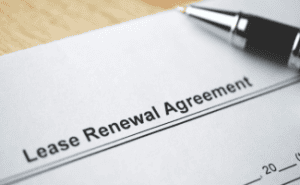Before You Buy: Conducting Due Diligence on a Property

Once you’ve finished the house hunting process and found a home to your liking, it’s time to put in an offer and make an agreement with the seller. But before you purchase your home, there’s some additional digging to do.
The due diligence stage in a real estate transaction is a vital part of the homebuying experience, giving the buyer an opportunity to have the home inspected, investigate possible neighborhood downfalls and work with his or her lender to determine whether this the home.
While many states require home sellers to disclose a property’s known defects, Carolyn J. Smith, broker at Exclusive Buyer’s Realty in Savannah, Georgia, explains that it most often falls on the buyer to inspect every detail that may affect his or her purchase decision.
“To prove that everything is all right, then it’s up to the buyer to do the inspection and due diligence,” Smith says.
When due diligence occurs during a transaction can vary by state, region or even municipality, so you should inquire with your local agent to be sure you understand the timing.
In Savannah, for example, due diligence is conducted immediately after the contract agreement is signed and lasts for an agreed-upon number of days by the buyer and seller, as stipulated in the contract.
In New York, the due diligence period occurs in the days before a property goes under contract, explains Ian Katz, principal real estate broker for the Ian K. Katz Group, based in New York City and Westchester, New York. In a fairly balanced market between buyers and sellers, the due diligence period typically lasts a couple of weeks, but in a tight seller’s market, buyers may agree to a shorter due diligence period – as short as two to three days – to gain an edge over a competing offer, according to Katz.
Here are seven things every homebuyer should do during the due diligence process.
Work with your lender. You should already be preapproved for a mortgage, so whether your due diligence period is before or after you go under contract, you should be ready to discuss your lender’s willingness to underwrite a loan for the specific property.
In Manhattan, Katz notes that newly developed condominiums whose associations may not have much financial history or whose reserve funds may be low could be red flags for lenders. These are details that can be addressed when conducting due diligence on a property.
“This is something that we’re going to want to clear with the bank so that we know that the bank will be comfortable moving forward transacting in the building and underwriting a loan in the building,” Katz says.
Inquire with an insurer. As you discuss the home with your lender, begin the process of finding a homeowners insurance provider and determining what insurance on the home will cost. If the home is in a flood zone or in a tornado-prone area, insurance might be more expensive than you bargained for or even more difficult to obtain.
“[Flood insurance] can be very costly in our area. Those are some of the things buyers immediately ask about: Are we in a flood zone, and how much is insurance?” Smith says.
Check out the ownership history of the property. A home’s history can say a lot about how it’s been treated – whether it’s been flipped previously or foreclosed on. Also, the length of time the current owner has occupied the home can be an key in understanding why the seller is moving.
Property reports from sites like HomeDisclosure.com, which pulls detailed property and neighborhood information from public records, includes crime statistics, school information and other neighborhood details, while also helping to paint the picture of the home’s past ownership.
“That can really help you understand the situation of the homeowner and how motivated they are to sell – knowing the equity in the home,” says Daren Blomquist, senior vice president of communications for Attom Data Solutions, which powers Home Disclosure.
Research the neighborhood. While you may have assessed the neighborhood’s characteristics during your home search, now is the time to make sure it’s an area you’re comfortable living in.
If you’re concerned about crime, inquire with the local police department and investigate using online resources such asNeighborhoodScout.com and FamilyWatchdog. These are details real estate agents can’t tell you on their own. “It’s up to the buyer to determine if there are any sex offenders in the neighborhood, or we can provide websites or local crime reports to be sure the buyer is in a safe neighborhood,” Smith says.
Have the home inspected. The last thing you want is to discover costly home defects as soon as you move in.
“If there are any … deal-breaking items, we have a chance to renegotiate the terms of the transaction, which could include a price adjustment or a seller going out and making some sort of repair as a condition to or contingency of the contract,” Katz says.
Not all inspections check for everything, though. When you speak with your inspector, clarify what the inspection entails. You may have to pay extra or hire another professional for a roof or termite inspection or to have the inspector confirm previous renovations were properly permitted.
Determine potential environmental hazards. Concerns about dangers to your health, such as radon or mold in the home and air or water pollution in the area, should be addressed during the allotted time period.
Smith recalls a previous client who grew worried about possible radiation emissions from heavy power lines located near the property the family was considering. Despite a low chance of the power lines being a problem, the buyers chose to err on the side of caution and terminate the contract, Smith says.
Search for other information of interest. You have your own plans once you own the home, so be sure to conduct thorough research for your specific goals. This could mean zoning if you’re hoping to build a shed in the backyard or municipal rules for running a business out of your home.
Blomquist notes a popular feature of Home Disclosure reports is the number of renters versus owners in a neighborhood, as well as the average rent, in case “you’re buying a property and you’re thinking, ‘Oh, I might want to put this on Airbnb or I might want to rent it at some point.’”















 Accessibility
Accessibility